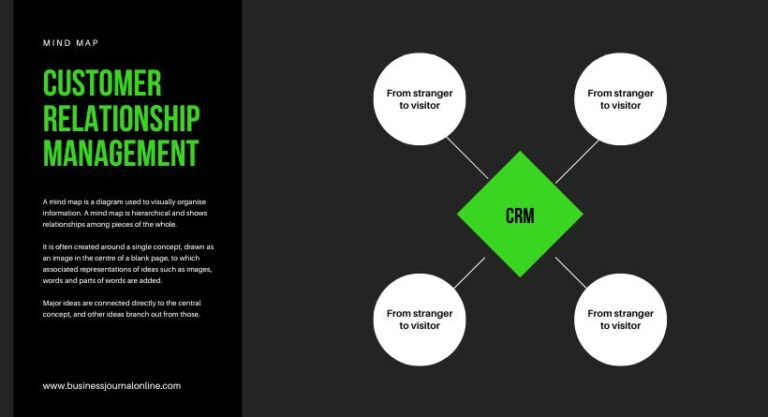We’ve examined the best customer relationship management services for small businesses. Check out our reviews to find the right program for you.
- CRM software helps businesses interact with and engage prospects and customers.
- CRM software may be hosted on-premises or in the cloud, depending on the provider and service plan you choose.
- CRM software aids in the management of client data by sales teams and other businesses.
- Small company owners interested in learning about the top CRM software and what to look for in a CRM should read this post.
There are several things to think about when selecting customer relationship management (CRM) software for your company, including price, functionality, setup, and connectors. Because there are so many alternatives available, we’ve investigated and evaluated several of the top platforms to identify the ones we believe are ideal for certain company requirements. After considering several aspects, such as how much each CRM costs, how easy it is to use, the capabilities it provides your sales and marketing teams, and how effectively it connects with other widely-liked business programs, we came up with our top selections. Learn more about our suggestions and crucial factors to take into account when selecting your CRM software by reading on.
OUR REVIEWS
Salesforce CRM: Best CRM Software for Small Businesses
In terms of CRM providers, Salesforce is regarded as a market leader and provides a well-liked platform that is perfect for small and developing organizations. Salesforce provides a wide range of solutions that are especially created for sales, marketing, and customer support teams for those who are prepared to advance and dig further into CRM capabilities.
Editor’s evaluation: 95/100
The dashboard’s natural structure makes it simple to navigate, making it simple to remain on goal when working through a particular project or nurturing a new lead. As the needs of your business and your clients change over time, more sophisticated tools like forecasting and AI-powered assistants may be introduced to business packages. Guided learning tools provide even novice users a broad set of instructions for easy usage.
Salesforce provides integration possibilities for an astonishing number of platforms and has one of the biggest third-party software markets in the sector. Whatever you need to meet your sales and service objectives, such as Mailchimp, QuickBooks, Dropbox, or Google Workspace, Salesforce can help you connect and simplify. The workflow builder will allow small firms simply automate every repetitive operation that your staff completes. The Salesforce mobile app is meant to be simple to use, mimicking the Salesforce desktop interface and allowing for customization for users in various positions.
A new Customer Data Platform powered by Salesforce Genie has also been revealed by Salesforce. Marketers may use this platform to collect real-time data from Salesforce as well as data from other sources including Mulesoft, native connections, and the Salesforce AppExchange. With the use of artificial intelligence, marketers may also use the Marketing Cloud Customer Data Platform (CDP) data and consumer information to customize customer experiences.
The Essentials plan, which has a user cap of 10, costs $25 per user per month and is ideal for many small organizations. With this strategy, small teams will have access to big-team tools including case management, mass email, campaign management, web-to-lead capture, lead management, and five lightning flow automation processes. Custom apps and group forecasts are elements of the $75 per user per month Professional plan. The monthly cost for the Enterprise plan is $150 per user, while the monthly cost for the Unlimited plan is $300 per user. As your contact lists and income increase, the extra important features offered by each plan level may enhance the CRM potential for your company.
monday Sales CRM: Best CRM Software for Project Management
Monday Sales CRM is a fantastic project management tool for companies with a seemingly unending stream of complicated projects and sales assignments. The main platform for job management offers vital time-saving and organizational features. Customers of Monday Sales CRM benefit from infinite boards for project organization and user-friendly interfaces. Monday Sales CRM delivers user-friendly technology to help your success, whether you want an unique dashboard for certain communication requirements or you want to dive into analysis with client data visualization capabilities. The fundamental work management platform stands out for its deliberate design, adaptability to any workflow, and scalability.
Editor’s evaluation: 95/10
monday Sales CRM is not only an easy-to-use platform that is geared for project management, but it is also quite adaptable. By automatically notifying team members when a project or task is ready for further action, customers may set up and connect notification systems with communications platforms like Slack, doing away with the need for routine status update meetings. All subscriptions also come with an infinite number of boards for managing contacts and projects. You can quickly create any number of time-saving automations with Monday Sales CRM’s straightforward trigger and action templates without having to do challenging activities or use any code. A unified data source that can automatically log emails sent, keep track of client interactions, and assist you in prioritizing your sales chances will help you save time and enhance productivity.
A free restricted individual plan from Monday Sales CRM comes with two complimentary seats, 5GB of storage, and more than 200 templates. When invoiced yearly, the Basic and Standard plans cost between $10 and $14 per user each month. Monday Sales CRM provides the Enterprise package for large-scale operations that need very sophisticated automations, analytics, integration, and protection; nevertheless, you will need to get in touch with the sales staff for a personalized estimate. All yearly members are qualified for savings of up to 18% on plans, while students and charitable organizations using Monday Sales CRM may be eligible for reduced or free access.
PipeDrive: Best CRM Software for Visual Sales Pipelines
Pipedrive is a superb CRM option for companies in need of a strong visual sales funnel with information and data visualizations readily available. Each opportunity is simple to comprehend because to its visual aids, and the drag-and-drop interface makes it simple for team members to take action on the tasks that are indicated as mission-critical on the dashboard. You can streamline your current workflow systems and enhance departmental operations with customisable pipelines and fields. Additionally, Pipedrive’s potent mobile app enables you to interact with clients and team members while on the road.
Editor’s evaluation: 88/100
NetSuite CRM: Best CRM for E-commerce
Midsize e-commerce businesses that depend on recurring business from their clients want a CRM platform that will enable them to comprehend their clients’ purchasing patterns. For company owners who wish to provide the greatest customer experience possible, Oracle’s NetSuite is a cloud-based ERP platform with CRM features. The CRM module aids businesses in getting the most out of each customer encounter at every point of contact. Your customer interactions are coordinated, automated, and organized by NetSuite across several departments, including marketing, sales, customer service, and technical support. This implies that any employee may speak with any client as if they have been the primary point of contact and have all relevant information from the first engagement.
Editor’s evaluation: 93/100
You can see everything that is being done across all of your departments that interact with customers thanks to NetSuite’s dashboard, which provides a 360-degree view of your customer data. Key performance metrics, ongoing campaigns, fresh leads, monthly data analysis, and other useful tools are all included on the dashboard. With forecasting features that foretell deal outcomes and assist you in staying on top of company objectives, NetSuite’s marketing automation is accessible for campaigns across a variety of channels. Any internet-connected device may function seamlessly with the mobile app, and its built-in shipping integration can aid with the laborious labeling and shipping tasks.
Pricing for Oracle’s NetSuite CRM module is only accessible upon request; nevertheless, most small and medium enterprises may anticipate paying a few thousand dollars per month for this service. To reduce their overall cost per user, many NetSuite CRM clients decide to package NetSuite with other Oracle services. Oracle offers software solutions for companies of various sizes, so even if the cost is unknown to some, it is still worthwhile to get a price quotation if you’re searching for an all-in-one solution.
Zoho CRM: Best CRM Software for Remote and Hybrid Teams
With the help of Zoho CRM, mobile and dispersed workers can operate more effectively as a team. With the help of Zoho, you can boost leads, speed up sales, and easily and effectively monitor performance. Zia, the AI-powered assistant, forecasts leads and transactions, recognizes prospects for conversion, and guides huge sales teams in an approachable manner to concentrate their efforts. With its gamification elements that promote friendly rivalry, Zoho is a desirable choice for remote workforces as well. No matter where your team members are situated, every lead, call, and transaction can be turned into a trophy that creates a competitive and supportive sales environment.
Editor’s evaluation: 92/100
With hundreds of connectors readily accessible and a customizable dashboard, Zoho makes it simple to create a unique and user-friendly platform. On the dashboards of every team member, helpful features like the Feeds notification module may be uniformly highlighted. SalesSignals is one of many useful tools; it keeps track of client interactions across several channels and alerts team members to important and urgent prospective prospects.
Additionally, Epygi Technologies’ PBX extension for Zoho CRM enables companies to increase the efficiency and effectiveness of their sales and support teams by linking their phone systems with Zoho’s platform. This integration includes practical features like single click-to-dial, automated call logging, and screen pop-ups for incoming calls.
The four price tiers offered by Zoho are Standard, Professional, Enterprise, and Ultimate. The Enterprise subscription, which costs $40 per user per month when paid yearly, is the most popular, according to the software vendor. A customer journey command center, Canvas visual CRM, a mobile software development kit, and multiuser portals are among its useful features. The most sophisticated plan, Ultimate, costs $52 per user per month while the Standard plan costs $14 per user per month.
Freshsales CRM: Best CRM Software for Communications
The built-in capabilities provided by Freshsales CRM software are intended to improve interactions and provide a deeper understanding of clients. Based on previous sales data, actions, and interaction, Freddy, a sophisticated AI assistant, may aid you in building a deeper knowledge of your consumers. Additionally, Freshworks features a simple built-in VoIP phone service that allows dialing from any device and offers toll-free local numbers in over 90 different countries.
Editor’s evaluation: 94/100
Freshsales makes it simpler to comprehend and provide your clients with the targeted goods and services they are looking for after you have your pipelines, processes, and forecasting tools in place. You can manage deals, anticipate income, manage deals, create customized mass email marketing campaigns, and strategically engage prospects all from inside the platform. Additionally, your Freshsales CRM may automatically create the contact profiles for your prospects, identify bad transactions, and revive dormant leads.
Freshchat is an AI-driven, bot-assisted messaging solution that Freshworks just released. Its purpose is to serve consumers while freeing up customer care employees for more complicated situations. Customer inquiries are answered by this chatbot using AI, and it points them in the direction of information and solutions. The bot will refer users to an agent if it is unable to help them. Freshchat integrates with Freshsales and Freshmarketer to establish a single platform for customer interaction that links sales teams, marketers, and agents across channels.
The Pro and Enterprise plans provide unique features that distinguish Freshsales as a desired CRM platform, even if all three of the premium Freshsales plans include with everything needed for effective sales and marketing. For each account, Freshsales provides a free plan and a 21-day free trial. Up to five sales sequences and 250 tailored mass emails every day are included in the Growth plan, which is the most affordable at $15 per month. For $39 per user every month, the Pro plan offers twice as many sales sequences and significantly raises the daily email capacity. The Enterprise package, which costs $69 per user each month and includes 25 sales sequences and 5,000 daily customised bulk emails, is accessible for more sophisticated sales requirements for bigger businesses.
Keap CRM: Best CRM Software for Ease of Use
Keap is a user-friendly solution for organizations experimenting with CRM software for the first time because of its straightforward setup and user-friendly design. Without presuming that its users are CRM specialists, Keap is intended to assist users in learning rapidly. To increase your team’s capacity to sell and provide support effectively, use the all-in-one CRM platform, which automatically adds all customer interactions and records all customer activity in a one location. Your staff can text, email, schedule appointments, make purchases, and add bills directly from the dashboard with just one click. Keap intuitively automates contact management from activities across several platforms to make starting your company simpler.
Editor’s evaluation: 94/100
In small company settings, Keap may be set up in as little as 20 minutes, and every client receives a personal support manager to ensure the program is used effectively. Keap offers ready-made and editable templates for new pipelines as well as practical video instructions outlining the software’s features. It is really geared to assist you expand your company. You may start automated processes to assist convert leads into sales without having any coding knowledge. Additionally, you may arrange data in a chronological or category layout for easy navigation. Additionally, Keap provides user-friendly data and assistance for income trends, email marketing effectiveness, and list expansion.
Keap is not only specifically designed for new users, but its price model also differs from that of other CRM software vendors. Keap provides two major plans: Pro and Max, with a contact-based pricing model. The Pro plan begins at $139 per month for two user seats when invoiced yearly, while the Max plan begins at $199 per month for three user seats. Both versions have a certain amount of contacts, although the platform can easily support more than 25,000 contacts with a larger monthly basis. Additionally, the business provides a 14-day free trial.
Quickbase: Best CRM Software for Cross-Platform Integrations
Despite the abundance of CRM software available, some small company owners discover that nothing completely fits their needs. Here comes Quickbase, a free CRM template that you can download and use to create a fully integrated CRM.
Quickbase is a “low-code” solution, which means that the majority of the labor-intensive work is already done for you, but the end output still has to be coded. Not everyone should choose Quickbase as their CRM, but programmers will welcome a low-code system that can be launched in a matter of weeks as opposed to months. Since system modifications and upgrades are conducted in a sandbox setting, updating the CRM system as a whole is often unnecessary. There is no lag at all while changing certain components.
Sage CRM: Best CRM Software for Customer Support
When you make a transaction, your obligation to provide excellent customer service doesn’t end. You must maintain the ties you have with your clients and act swiftly when problems develop. Without leaving the CRM platform, your staff members may assist customers and keep track of resolutions with the aid of Sage CRM’s customer service features. To assist you uncover service gaps, team collaboration capabilities give analytics on case histories and resolution timelines, and reporting tools enable you produce detailed visual charts and reports.
A central repository is provided by Sage CRM to store frequent problems and their fixes. For consistency and quicker case responses, you may add solutions as you go or save evaluated and preapproved solutions in the knowledge base. A online self-service portal that enables your clients to fix their own problems may be developed as an alternative, or in conjunction with it, to lessen the workload on your support staff.
SugarCRM: Best CRM Software for Midsize Businesses
It may be difficult for firms of all sizes to keep up with a quick-changing sales environment. SugarCRM’s software was developed with automation in mind, and its AI-powered lead discussions and forecasts enable teams work more productively and successfully in a digital environment. While SugarCRM’s add-on modules increase its automation capabilities, its fixed core features optimize efficiency without requiring any modifications. You may access the data produced by SugarCRM’s automatic features via a consolidated overview using reports and dashboard summaries. To assist companies in meeting their monthly, quarterly, and yearly objectives, the AI system compiles a thorough history of a customer’s trip and makes astoundingly accurate predictions about outcomes.
Editor’s evaluation: 85/100
Insightly: Best CRM Software for Customization
Insightly CRM offers a special and very practical relationship-linking tool that allows users more control over their sales activities. Insightly provides a dynamic and readily adaptable solution for small teams who lack the capacity to handle all the specifics of sales operations. Administrators and representatives may create the bespoke dashboards of their dreams to showcase certain contexts, KPIs, and procedures. The more costly plans are the only ones that include AI and predictive capabilities, although all of Insightly’s service levels let you set up particular rules for typical occurrences that lead to actions throughout the sales process.
Editor’s evaluation: 86/100
HubSpot CRM: Best CRM Software for Integrations
HubSpot is an excellent choice for sales organizations wanting to boost performance by centralizing data from diverse software providers, thanks to the hundreds of connectivity features included in the new Operations Hub. Customers may quickly integrate third-party technologies to sync and purge customer data while automating business procedures to boost your team’s productivity. Your HubSpot CRM records sales funnel data, activity insights, productivity, and performance throughout your sales activities after you’ve connected your other software platforms.
Editor’s evaluation: 92/100
Zendesk: Best CRM Software for Complete Customer Life Cycle
To provide help across the whole customer life cycle, Zendesk provides special native integration and customer service tools. Everyone must be on the same page in order to provide customers with experiences that go beyond the sales team. Zendesk Sell fosters cross-departmental cooperation by enabling teams from sales, marketing, and support to collaborate on the same unified data and objectives. This CRM solution combines data from many client touchpoints, eliminating redundant conversations or missing context across several departments. For firms with intricate client profiles and lasting connections, this is tremendously helpful. With Zendesk Support, for instance, your support staff can keep track of the customer’s journey across marketing and sales.
Editor’s rating: 90
CRM Expenses
The majority of CRM programs are charged per person per month. Annual billing is a popular choice among businesses since it makes payments easier and costs less. (Most services provide discounts if you pay annually as opposed to monthly.) In light of this, the typical price ranges you might anticipate are as follows:
- $10–$15: Cheap CRM packages are an excellent choice for small organizations with basic requirements, and many firms only charge $10–$15 per user each month. These reasonably priced solutions typically don’t require a lot of in-house technical assistance to implement. This price range is a fantastic location to look for a quick fix with little fuss. Just make sure the storage options suit your needs; with less expensive CRM software, the amount of customer records you can store is typically limited.
- $20 to $40: A CRM in the $20 to $40 per user per month range would probably suffice for your needs if you want more functionality and a wider variety of integrations with third-party systems. Due to its focus on serving the needs of SMBs, the bulk of the CRM software we tested falls inside this pricing range. Check for storage quotas and restrictions on the number of supported users when you browse the options in this price range to avoid being forced to upgrade to more expensive plans.
- $50–75: CRM software priced between $50 and $75 per user per month is usually created for business use. These solutions frequently offer possibilities for legacy system integration and offer more customization choices than other CRM software. Despite their strength, these kinds of systems are not required for the majority of small firms.
- $250 or more: Extensive training, customization, and implementation services are frequently included with expensive CRM systems. These solutions are expensive since they are not cloud services but rather local hosting options, which is advantageous for businesses with specialized security requirements.
CRM OPTIONS
Knowing your needs is crucial when looking for a CRM program. To help you decide which CRM systems will best suit your company’s needs, here are some common features you can discover in each.
Process Automation
The foundation of your system’s operation and the software’s automatic activities is workflow automation. For instance, you might program the software to notify a salesperson immediately anytime a customer fills out a form on your website. This function streamlines your workload and handles the minute details of your team’s sales and marketing activities by moving specific procedures and data along inside your program
CRM reporting reports dissect your sales and marketing data to enable you to more thoroughly comprehend and analyze leads, consumer purchasing patterns, the volume of outbound calls made by your team, and other crucial marketing metrics. More report types and data visualization options, such bar graphs and pie charts, are offered by certain CRM software than by others. Some even let you customize your own reporting metrics.
Management of Customer Data
Running a successful business begins with knowing your clients. Utilizing solutions for customer data management will help you arrange customer data clearly and strengthen customer interactions.
Customization
Making your CRM uniquely yours will shorten the learning curve and guarantee that it delivers the data you require. When a program is adaptable, you may choose the features you need and shape the contact fields, dashboard, reports, extensions, and plugins to best suit your requirements and financial constraints.
Integrations With Third Parties
With the help of third-party CRM connectors, your system may access a greater variety of tools. You can link your CRM to applications like your email marketing or accounting software that have functions the CRM might not. You won’t have to manually enter data that is already present in another program, switch between apps frequently, or spend money on other CRM products because of this. How CRMs Streamline Email Marketing is a related topic.
WHICH CRM SOFTWARE TO SELECT
1. Create a budget
Before you start shopping for a CRM, it’s best to establish your budget because prices can range from free to more than $1,000 each month. Before diving into feature sets and service plans, it is simpler to eliminate CRM software that is out of your pricing range.
2. List the features.
Even the most basic CRM system might be too complex due to the sheer quantity of features and capabilities available. List the CRM elements that are essential and those that are desirable but not necessary to ensure clarity. This is a wonderful opportunity to solicit feedback from other employees who will use the CRM in your firm. They might suggest things you hadn’t considered or suggest removing characteristics you believed they would like.
3. Request recommendations from similar companies.
Choosing the best CRM might be challenging in a market that is filled with sales technology. Recommendations from insiders who comprehend the demands of your sector are priceless.
4. Evaluate the market as it stands.
As technology advances, the CRM market is subject to quick change, therefore well-known solutions you may have heard of in the past may no longer be the best option. The greatest places to go for guidance on starting a small business are trade magazines and websites.
5. Review articles.
Read any user reviews you come across as your selection of potential CRM candidates expands. Reading about specific solutions on the websites of the suppliers won’t provide you as much insight into how they work in practice.
6. Verify your top picks.
Take each of these candidates for a test drive so you can determine which CRM software has the most potential at this moment. Before investing money on a long-term solution, test as many of the companies’ free trials as you can. The easiest approach to assess a CRM is to use it yourself. Sales representatives are typically ready to answer any questions you have or give you a demo of their product, but keep in mind that it’s their job to put it in the best light possible.
7. Reach a conclusion.
It’s time to make a decision once you’ve done your research. Even though it can take some time to complete all of these processes, it will be time well spent on such a significant investment.
THE BENEFITS OF CRM SOFTWARE
Your company can gain from having a central location where all client communications are logged and marketing strategies are created. A CRM gives your business the following benefits:
- Organize and keep up with consumer data. CRM software is perfect for businesses that must use current information to serve their clients. This is the most fundamental yet crucial advantage that CRM software may offer for your company.
- Plan out your sales procedure. Using sales data from the past, CRM software enables you to forecast future sales. The ability of businesses to forecast future demands and expenses depends on sales reports and insights.
- Scale up and simplify your sales cycle. You may improve your sales process and eliminate stages that aren’t necessary with the help of the data that CRM software provides. You’ll learn what forms of communication are effective and which ones are not. CRM software can assist you when you need to scale up your sales process.
- Workflow automation: CRM software automates data entry and administrative processes, freeing up your staff to concentrate on developing enduring relationships with customers. Additionally, workflow automation reduces the possibility of human error.
- Build up your customer base. CRM software aids in customer engagement and long-term relationship building for your team. Your team may keep track of customer information and customize customer interactions to fit each one’s particular wants and preferences by using the data kept in your CRM.
Frequently Asked CRM Questions
What accomplishes a CRM system?
CRM solutions assist your sales force with communication tracking, lead management, and even marketing campaign development. To put it another way, a CRM enables you to create and manage relationships with your clients and other companies.
CRM systems are used by businesses for a variety of reasons. However, at first, the CRM sector was primarily targeted towards sales and PR professionals, providing a practical means to store data and monitor customer communications. CRM solutions today cover a wide range of functions, including marketing, analytics, communication, and light project management. Some CRM systems even include built-in chatbot and calling features, enabling your sales representatives to speak with customers right from the platform.
Which CRM software examples come to mind?
Any technological tool that enables firms to manage communications with their current and potential customers is referred to as CRM software. Salesforce, Zoho, and HubSpot are leaders in the CRM software market.
What qualifies a CRM program as “open source”?
The term “open source” refers to software that makes some or all of its source code available for users to inspect and modify. Open-source programs are frequently chosen by developers and programmers who desire considerable customization capabilities for their CRM software.
What distinguishes marketing automation from ERP and CRM software?
It is natural that there is frequently confusion regarding the distinction between ERPs and CRM software because there is some overlap between CRM software and ERP software.
Accounting, human resources, inventory, and analytics are just a few of the many company processes that ERP software is designed to manage. As a result, ERP software frequently includes CRM functionality. CRM software specializes in keeping track of customer information, recording client interactions, and archiving lead information that relates to sales. Meanwhile, corporations utilize marketing automation to streamline, automate, and measure marketing operations in order to increase revenue.
Do I need to look at a free CRM?
Using a free CRM has the obvious benefit of being cost-free. When it comes to the benefits that no-cost CRM software may provide, systems like HubSpot shift the needle by enhancing corporate operations and organization.
The number of users, integrations, and possibilities for campaign design are often restricted with free programs. They just give you the features you need to realize you might need more. In other words, you can utilize them as good starter programs while determining your particular needs.
You might, however, run into inadequate security measures or a dearth of automatic backups. Free programs are vulnerable to theft or breach, and they provide little assistance for expanding businesses.
What other tools are compatible with CRM software?
The most popular CRM solution connectors are for sales and marketing add-ons. Tools for reporting and tracking are also well-liked. While third-party interfaces need middleware to enable data interchange between the CRM, the operating system, and other apps, direct integrations often connect more rapidly. Because the integration needs to be established, custom API integrations often take longer.
How can I convince my employees to use CRM software?
It’s crucial to explain to your employees what a CRM system can do for them. To identify a solution that works for everyone, involve your workers in the search process. Make sure your team receives all the necessary training before and during installation so they are confident utilizing the program. Encourage your staff to voice their worries to the training representative so that they can be addressed. You want your workforce to feel confident and competent using the CRM system.
A CRM analyst is what?
To assist your company in providing the finest sales and customer service advice, a CRM analyst reviews your consumer data. These professionals assist you in determining the best ways to market to your clients by assisting you in understanding their wants and interests.
What drawbacks exist with CRM software?
Using CRM software comes with various hurdles, just like any other business approach. First and foremost, small business owners may not be able to buy such technologies. Many CRM services are not just expensive up front but also have further expenses. For instance, in addition to the base price of the CRM, you could also have to pay for system administrators, software developers, maintenance, and data backups. Before choosing whether you can afford a specific system, read the small print and inquire with the CRM seller about any additional fees.
If your CRM crashes or malfunctions, it might potentially have a bad effect on your business. You run the risk of losing all of your documents, which could be financially detrimental to your company and dissatisfy your clients. Additionally, teaching your personnel to utilize the CRM properly may be a protracted and tiresome process depending on the CRM’s learning curve and the experience of your team.
What comes first in the CRM procedure?
Research is the first stage of the CRM process. Spend some time getting to know your target audience and the best way to reach out to them. You need to know their hobbies, preferred method of contact, demographics, and preferred methods of communication.
Then, separate your target audience into categories so that you may directly market to them based on their preferences. Gathering and categorizing your leads is a crucial first stage in the CRM process since it helps you understand the marketing plan you need develop in order to successfully convert them into customers.
How does automation normally work in CRM systems?
Within your CRM, you can automate three different types of workflows: the marketing, sales, and service roles. CRM automation enables your software to carry out particular duties frequently so an employee won’t have to. This is particularly helpful for advancing customers from the knowledge-gathering stage of the buyer experience to the point where they can be converted into a client. It also saves time and improves the workflow of your staff, which can increase the overall productivity of your business.
EXPECTATIONS FOR 2022
CRM software has advanced recently and is now connected with a wider variety of corporate processes. For instance, the integration of social media and email has been a defining feature of CRM development. CRM functionality will expand as AI and machine intelligence become more prevalent.
The COVID-19 epidemic has also contributed to the expansion of CRM. There was a greater need for consumer and staff communication as more people than ever before conducted business from home offices or made purchases online. The answer to this issue was CRM software, which offered efficient product tracking systems and organized recordkeeping services for medical practitioners.
CRMs will put a greater emphasis on client self-service in 2022. According to statistics from Salesforce, about 80% of customer support representatives reported that the epidemic had increased the number of self-help that their clients were using. Frequently Asked Questions (FAQ) pages, assistance sections, and secured customer profiles are a few examples of self-service locations where orders can be tracked or refunds can be completed.
Additionally, there will be increased Internet of Things (IoT) connectivity through CRM linkages to IoT data. By 2030, it’s anticipated that there will be more than 25.4 billion linked devices. According to predictions, 152,200 IoT devices would be connecting to the internet every minute by 2025. The next ten years will be successful for the developers who take advantage of these trends while maintaining or improving user experience.







